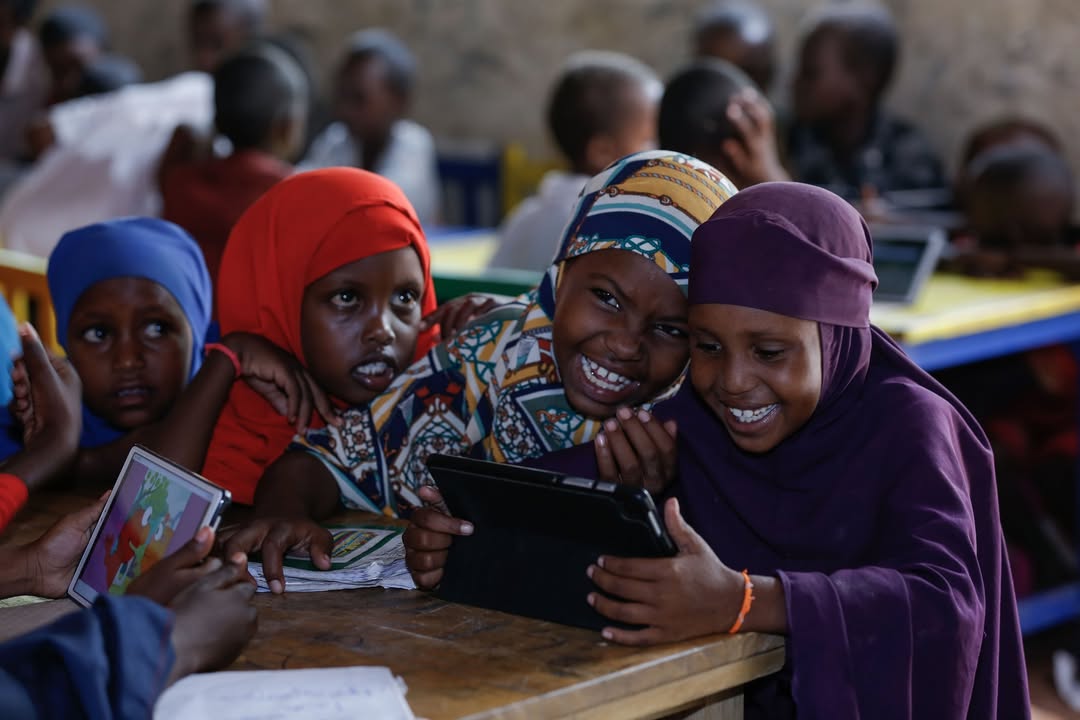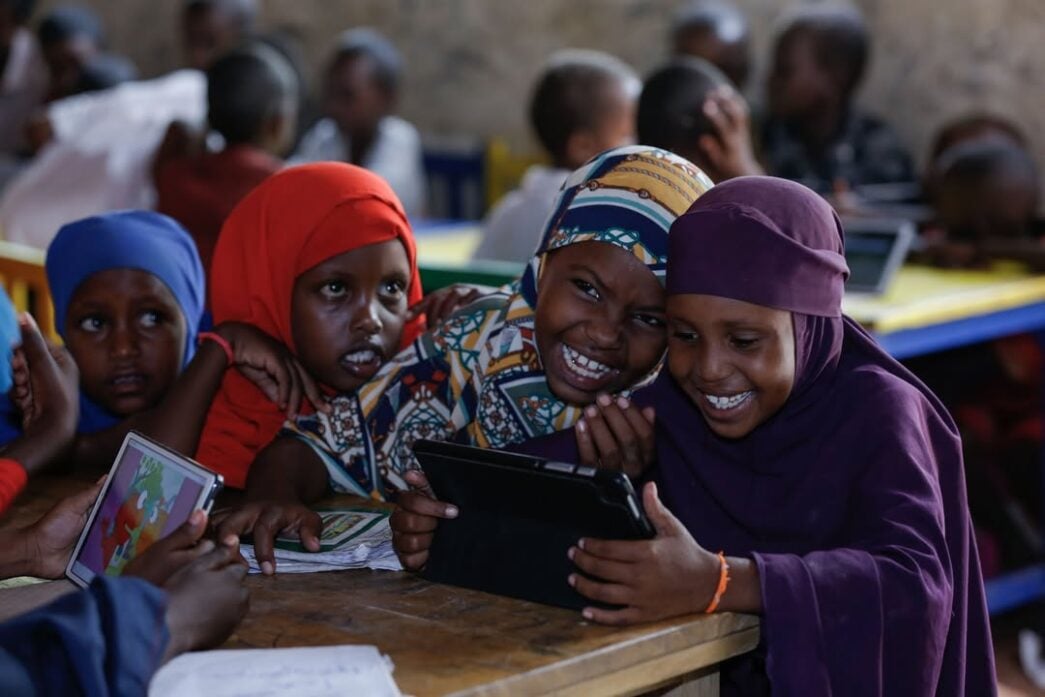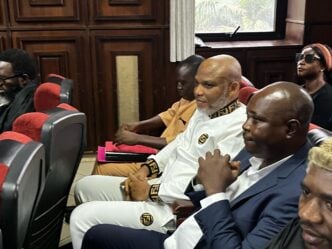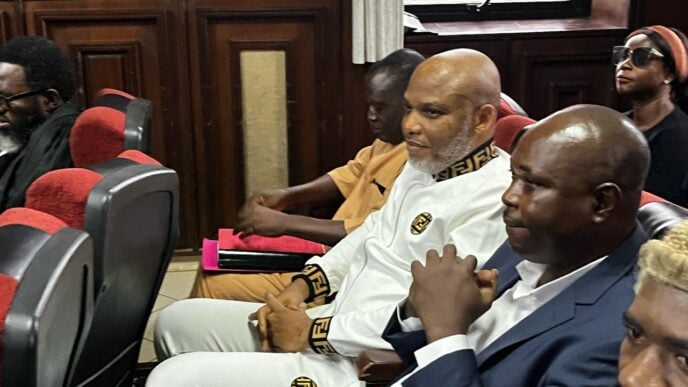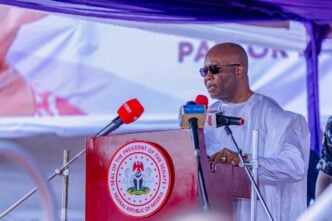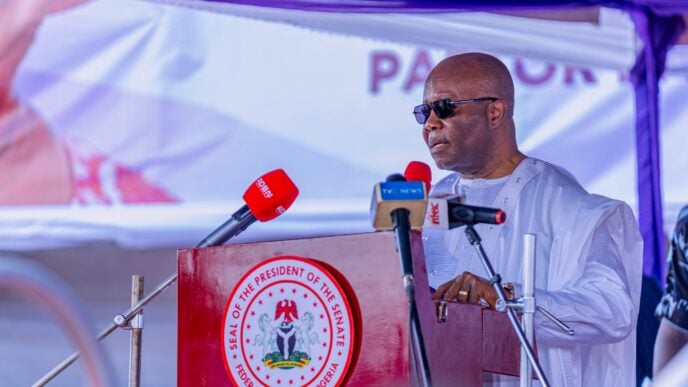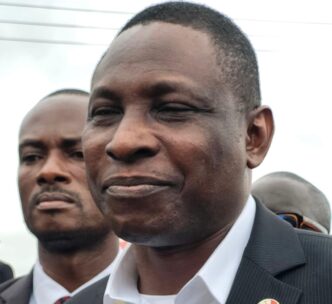File photo of children in a classroom in northern Nigeria
BY OYETOLA MUYIWA ATOYEBI
The legal rights of Nigerian children are embedded in a range of national laws and international agreements. These laws rest on fundamental principles that safeguard human life, prevent harm, uphold human dignity, and promote human development. They affirm the simple truth that children are the cornerstone of society, and the survival and progress of any nation depend on how well it protects, nurtures, and empowers them.
Yet, despite these legal provisions, the effective enforcement and realisation of children’s rights in Nigeria remain a major challenge. Many children still face significant barriers to accessing justice, ranging from poverty and inadequate legal representation to cultural practices and systemic shortcomings within the justice system. This gap raises urgent concerns about whether the rights of children in Nigeria are protected in practice or only on paper.
Access to justice for children goes beyond legal recognition; it is about creating a framework where their voices are heard, their needs addressed, and their best interests prioritised. A child justice system must be accessible, fair, and sensitive to the unique realities of childhood, especially for those from vulnerable backgrounds. As Nigeria continues to pursue its commitments under the Child Rights Act of 2003 and international treaties such as the United Nations Convention on the Rights of the Child, it is imperative that the gap between the law and people’s experience is aligned.
Advertisement
Nigeria’s child protection legal framework is based on constitutional provisions, national laws, and international treaties. The 1999 Constitution provides the foundation for children’s rights under its general human rights provisions. It guarantees the right to life, ensuring that no one, including a child, shall be deprived of life except under lawful circumstances. It also mandates the government to provide free and compulsory education at the primary level and encourages the provision of university education and the promotion of science and technology. While not consolidated in a single clause, the Constitution’s prohibition of inhuman or degrading treatment covers the protection of children from exploitation, trafficking, and forced labour.
Although the Constitution lays a broad foundation, it does not address child-specific issues in detail. That responsibility falls to the Child Rights Act of 2003, Nigeria’s principal legislation for the protection and welfare of children. The Act was enacted to domesticate the provisions of the United Nations Convention on the Rights of the Child and the African Charter on the Rights and Welfare of the Child. It provides a comprehensive framework that recognises every child’s right to survival, development, and protection from harm. It also guarantees every child free, compulsory, and quality education, consistent with the constitutional mandate. The Act expressly prohibits harmful cultural practices such as child marriage, child labour, trafficking, and the recruitment of children in armed conflict, emphasising the right of every child to be protected from violence and exploitation.
On matters of health, the Child Rights Act provides that every child is entitled to the best attainable state of physical, mental, and spiritual well-being. It places an obligation on governments, parents, guardians, and institutions to ensure that children enjoy access to basic healthcare, nutrition, and safe environments necessary for their development.
Advertisement
Complementing these protections, the Labour Act places strict limits on child labour. It prohibits the employment of children in any form of work that could endanger their health, education, or development. Only light work performed under family supervision, such as domestic or agricultural tasks, may be permitted, provided it does not pose harm to the child’s physical or mental well-being. No child under sixteen may be employed without parental consent, nor required to work overnight or carry loads too heavy for their physical capacity. These provisions, while commendable, continue to face challenges of enforcement in parts of the country where child labour remains prevalent.
Access to justice is at the heart of human rights protection. For Nigerian children, however, it remains a difficult right to exercise. The Child Rights Act addresses this by establishing Family Courts at both the High Court and Magistrate levels to handle matters involving children. These courts are designed to operate in a child-sensitive manner, ensuring privacy, confidentiality, and protection throughout the legal process. The Act mandates that all proceedings must prioritize the best interests of the child, provide for free legal aid, and prohibit the publication of any child’s identity. The goal is to ensure that children who come into contact with the law are treated with dignity, compassion, and fairness.
In practice, however, several barriers continue to hinder children’s access to justice in Nigeria. Illiteracy remains a major factor, as many children and their parents are unaware of their legal rights or how to seek redress. Cultural norms in some communities discourage the reporting of abuse or exploitation, particularly when the perpetrator is a family member. The judicial process itself often lacks child-friendly mechanisms, with few specialized personnel or safe spaces where children can give evidence comfortably. Poverty further compounds these problems, as most families cannot afford legal services or the costs of pursuing cases through the courts. Even when cases are filed, prolonged delays and adjournments discourage victims and their families from seeing justice through to conclusion.
In addressing these challenges, the establishment of Family Courts is a positive step in the right direction; however, implementation and use must be deepened through training, funding, and public awareness. Child-friendly procedures, free legal representation, and community-based reporting mechanisms of abuses are also essential. Collaboration among government institutions, civil society, and international partners such as UNICEF can further strengthen advocacy and ensure that the rights of children are not lost in bureaucratic inefficiency.
Advertisement
Nigeria’s ratification of international conventions such as the United Nations Convention on the Rights of the Child and the African Charter on the Rights and Welfare of the Child underscores its commitment to protecting the rights of children. The real test, however, lies in translating those commitments into consistent action at every level of federal, state, and local government.
Ultimately, for Nigeria, ensuring that every child, regardless of background or circumstance, can access justice and protection is fundamental to building a just and equitable society. Strengthening legal institutions, expanding access to education, and raising public awareness are vital steps toward realising that vision, and only then can the promise of justice for children become a general reality all over the country.
Oyetola Muyiwa Atoyebi is a senior advocate of Nigeria (SAN)
Advertisement
Views expressed by contributors are strictly personal and not of TheCable.
